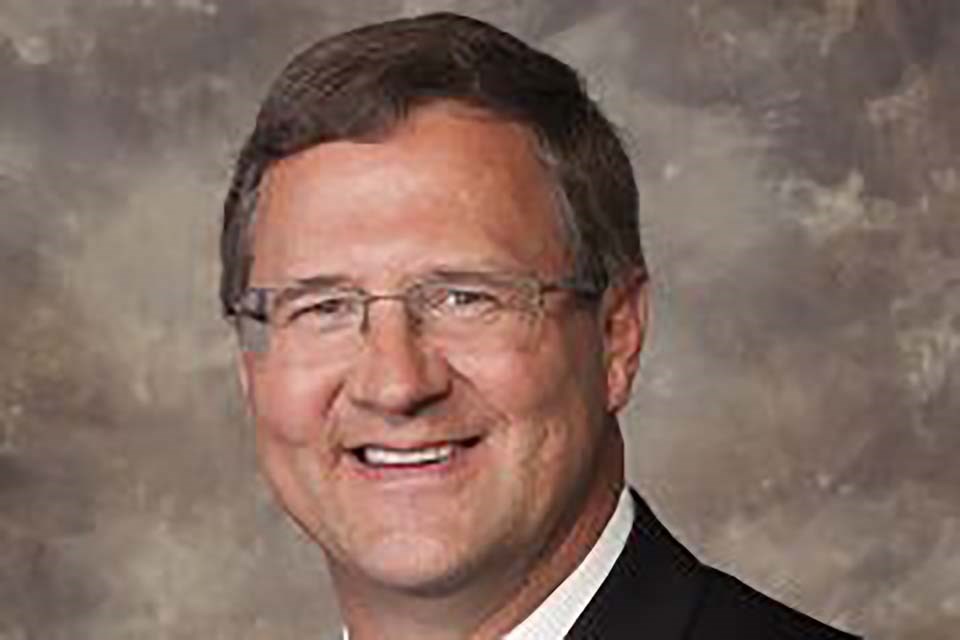Editors note: A previous version of this story incorrectly identified Karyn Harper's former job title. She worked as a recreation coordinator with a long-term care unit. An out of context paraphrase from Harper's comments was removed from the story.
ATHABASCA — Athabasca and area residents had their chance to take “the future of healthcare” in Alberta into their hands for an evening this month when provincial officials and a local politician stopped in for an information and engagement session on the upcoming healthcare re-structuring in the province.
The Feb. 15 in-person session, held at the Athabasca Regional Multiplex, was one of some 34 events held across the province by the Alberta Health since late January, aimed at collecting community perspectives on the current healthcare system.
Athabasca-Barrhead-Westlock MLA Glenn van Dijken hosted the event, which saw approximately 20 locals in attendance. van Dijken welcomed his constituents, emphasizing the importance of the process and addressing perspectives voiced ahead of the session.
“I really encourage you to bring your voice and your concern, or your ideas, your input to the table, don’t be scared to get involved,” said van Dijken. He cited a question from Town of Athabasca Coun. Dave Pacholok, who asked if the input given would make any difference.
“We never know what kind of nugget we’re going to get out of any of the meetings that we participated in, but we’re not going to get the nugget if we don’t get the participation,” said van Dijken.
The MLA was followed by virtual comment from Alberta Minister of Health Adriana LaGrange, with a personal assurance of her own involvement in reviewing feedback from Athabasca’s and all other community-based sessions. She said the goal of the sessions is to determine what’s working, what’s not working, and what needs to change going forward.
“We know the system is broken, or at the very least, quite ill,” said LaGrange’s pre-recorded message. “These discussions are critical. The future of healthcare really is in your hands, as your input and expertise are what we are relying on to help shape the future of healthcare in Alberta.”
Matthew Hebert, Assistant Deputy Minister of Health System Refocusing for Alberta Health broke down the government’s plan to divide Alberta Health Services (AHS), the current province-wide healthcare provider, into four individual organizations that was announced Nov. 8, 2023.
“What we’ve discovered and reflected upon over the last number of years is that AHS as an organization is stretched pretty thin,” said Hebert. He said the four new organizations overseeing acute care, continuing care, primary care, and mental health will help address major concerns within AHS, like reducing pressure on acute care and empowering healthcare staff.
The restructuring will also come with the creation of 12 advisory panels and one Indigenous advisory council, with members to be appointed by the government. The panels will be accountable to Minister LaGrange and the four organizations and allow for greater community-led decision making in healthcare delivery.
Hebert laid out a rough timeline for the launch of the new organizations, with continuing care and mental health and addictions to come in the spring, along with the appointment of the advisory panel members, while the primary and acute care organizations will follow in the fall.
Speeches from Alberta Health officials were followed by round-table discussions between facilitators and community members. Participants gathered in three groups to share their thoughts on the gaps in healthcare delivery and provide suggestions for needed changes. Commentary from attendees during the session included a perceived lack of respect for current AHS staff, increased burdens on EMS, and a top-heavy organization with gratuitous red tape.
In an interview after the engagement session, former recreation coordinator for a long-term care unit, Karyn Harper voiced her concerns about a continuing care system that doesn’t allow for seniors and older residents to age in place.
“My mother is, right now, in the long-term care facilities. What I’ve noticed, and you don’t notice until you have a loved one in these facilities, (is) that there are not enough facilities for them,” said Harper.
“Many are being forced to go elsewhere, out of the community, over an hour-and-a-half drive, which is not fair for that resident, especially if they have dementia, and they are left without any family members visiting for that reason,” she added.
Maxine Winder, another former AHS employee with 42 year’s experience in the industry, expressed both pros and cons of her experience at the session in a Feb. 16 email. “I felt privileged to be a part of (the) exercise in providing feedback to improve our healthcare system,” she wrote.
“I also felt a sense of disappointment that several people had secured a spot for their presentation of concerns and were a no-show. Those spots could have been taken by people who were genuinely concerned and had valuable input.”
According to an AHS facilitator, more than 70 individuals had registered for the event through the online portal sent out via email in mid-January. Approximately 20 participants attended the session.



